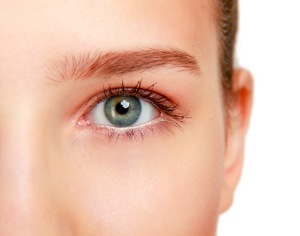Watch Out for These Medical Conditions That May Cause Eye Problems
Your eyesight, like any other aspect of your health, is affected by the rest of your body. Every part of your body is interconnected. When one area fails, others suffer the residual consequences. That means that there are a variety of medical conditions that cause eye problems. When it comes to your eyes, you always want to make sure that they are in good shape, so let’s examine four of the medical conditions that may cause eye problems.

Diabetes
Diabetes is a digestive issue in which the body cannot produce insulin, but it can have an incredible effect on the rest of your body as well. Your retina, the part of your eye that is light sensitive and communicates with the brain through the optic nerve, is particularly sensitive to the chemical and nutrient imbalances that diabetes creates. Diabetic retinopathy is an eye condition associated with diabetes and it is often what leads to a diabetes diagnosis. If left unchecked, diabetic retinopathy can cause a great deal of pain, swelling, and discomfort, and eventually can even lead to total blindness.
High Blood Pressure
High blood pressure is an extremely common cardiovascular condition resulting from a combination of genetic predisposition, diet, lifestyle, and environment. When you have high blood pressure, the arteries in your body work overly hard to get the blood to flow throughout your body. Oftentimes, high blood pressure also involves blockages and constriction in the arteries. This constriction and the resulting lack of proper blood flow can lead to hypertensive retinopathy which can cause headaches, vision trouble, and bleeding behind the eyes.
Grave’s Disease
Grave’s disease is an immune disorder sometimes known as hyperactive thyroid disease and it means that the thyroid gland is actually overproducing hormones. When it comes to your eyes, this can lead to swelling and inflammation of your eye tissues. The fluid buildup in your eyes can cause pain, watering, and blurred vision. The swelling in the eyes can become so profound that the eyes bulge out of the sockets.
Autoimmune Conditions
Autoimmune conditions can affect every inch of your body, including your eyes. Some examples of autoimmune conditions that can have an effect on your eyes include lupus, rheumatoid arthritis and other arthritic conditions, ulcerative colitis and Crohn’s disease. These conditions can cause inflammation in the eyes or lead to dryness, thinning of the cornea, blurred vision, headaches, sore eyes and/or sensitivity to light.
If you’re experiencing any of the above eye conditions or if you’ve noticed any changes in your eyes or vision recently, it’s important that you make an appointment with your ophthalmologist. Click here to learn more about the medical conditions that may cause eye problems or to schedule an appointment with leading ophthalmologist Dr. Shareen Greenbaum.
